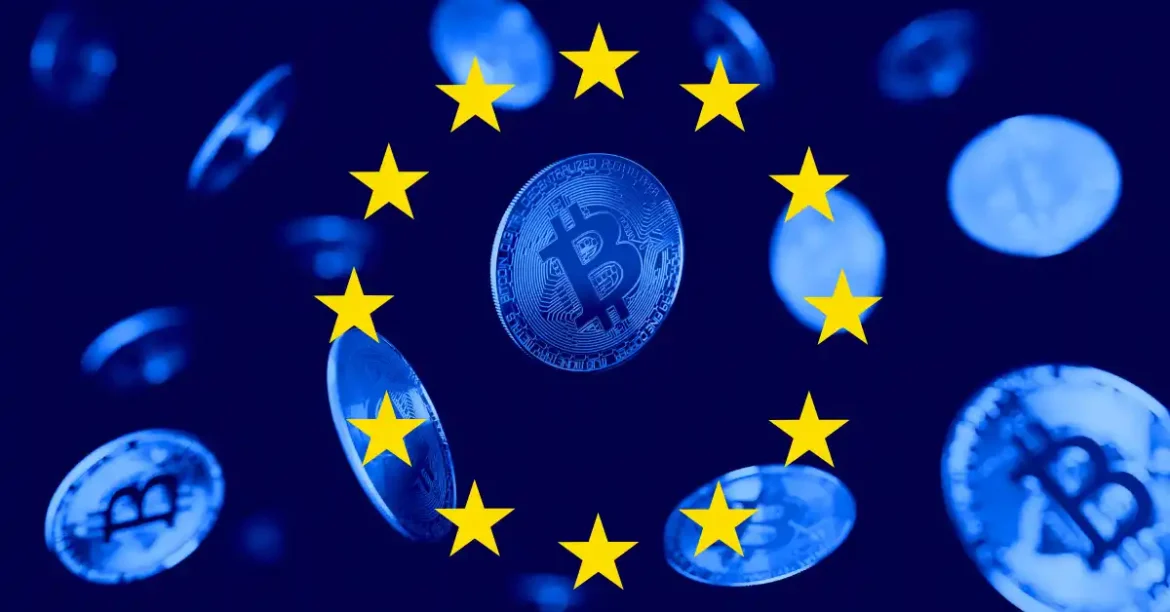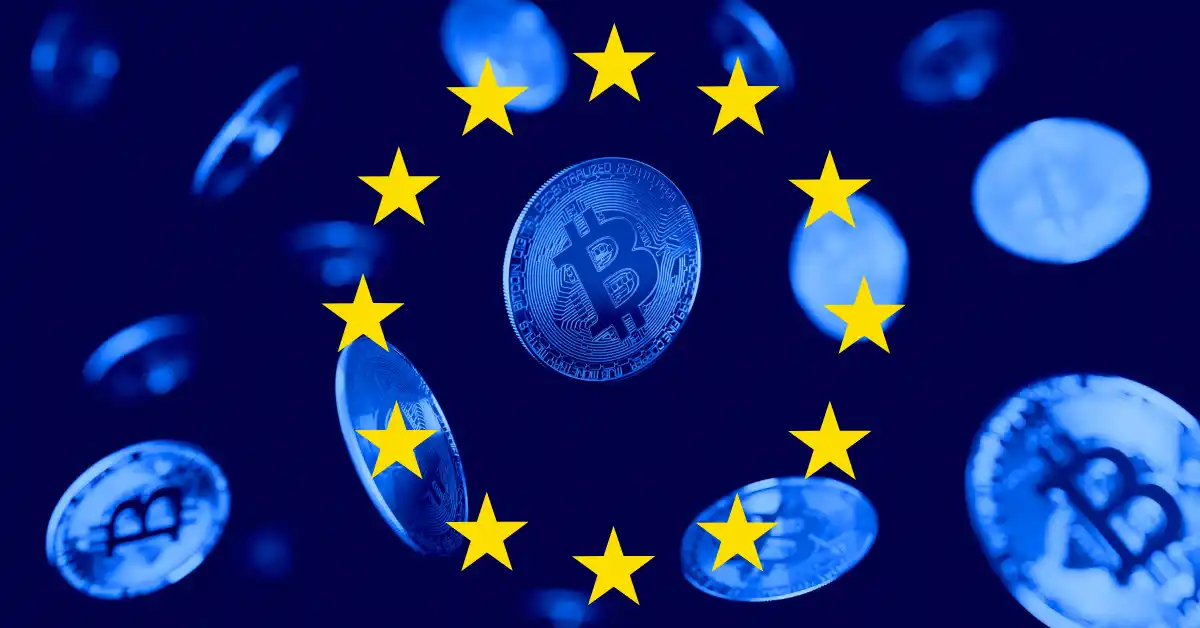The European Data Protection Board’s Blockchain Guidelines and the Impending Challenge to Bitcoin in the EU
In recent months, the European Data Protection Board (EDPB) has released draft guidelines addressing the processing of personal data through blockchain technologies, sparking a significant regulatory debate across Europe. Central to this discussion is the possible incompatibility between blockchain-based cryptocurrencies like Bitcoin and the EU’s flagship privacy regulation, the General Data Protection Regulation (GDPR). These guidelines raise the provocative question: Could Bitcoin become de facto illegal in Europe due to GDPR conflicts?
—
Understanding the EDPB Guidelines: Public Keys as Personal Data
The crux of the issue lies in the EDPB’s argument that Bitcoin public keys qualify as “personal data” under GDPR. According to the draft, a public key—even if it does not explicitly name an individual—can indirectly identify a person by linking their blockchain activity to their real-world identity through various investigative means.
This interpretation fundamentally challenges the long-held view that Bitcoin transactions are pseudonymous but not personal data as traditionally understood. The designation as personal data triggers GDPR’s comprehensive compliance demands, notably including:
– The Right to Erasure (“Right to be Forgotten”): Individuals can demand deletion of their personal data.
– Data Minimization and Data Protection by Design: Organizations must limit personal data and incorporate privacy into system architecture.
– Accountability and Transparency: Entities controlling data must meet strict documentation and compliance criteria.
For immutability-centric blockchain systems, these requirements pose a paradox. A blockchain’s defining characteristic is its permanent, unalterable ledger — data, once written, can neither be deleted nor modified. This stands in stark opposition to the GDPR’s erasure rights and data correction mandates.
—
The GDPR Immutability Paradox: Why Bitcoin Could Face a Legal Dead End
Bitcoin’s blockchain operates as a distributed ledger where transaction data is replicated across thousands of nodes worldwide. Every transaction, linked to a public key, is permanently recorded and visible. Given that:
– If a public key is personal data,
– And personal data must be erasable or amendable upon demand,
– But blockchain data cannot be altered or deleted,
a legal conflict emerges.
This regulatory tension means parties who handle Bitcoin transactions — from exchanges and wallet providers to miners and node operators — could face significant compliance challenges. Failure to comply risks heavy GDPR penalties, potentially classifying Bitcoin operations as unlawful within the EU.
—
Implications for the Crypto Ecosystem in Europe
Should these guidelines be adopted in their current form without legal adaptation or exemption:
– Potential De Facto Bitcoin Ban: Bitcoin use could become untenable in Europe, effectively outlawing it without a formal legislative ban.
– Risk for Global Crypto Projects: Companies dealing with cryptocurrencies might find themselves locked out of the lucrative EU market unless they redesign or relocate their operations.
– Innovation and Technological Progress: The clash between blockchain’s architecture and GDPR could stifle innovation around decentralized finance (DeFi), digital assets, and other blockchain applications in Europe.
– Legal Uncertainty: Traders, investors, and developers may face unclear legal status, discouraging participation and investment in crypto projects.
Industry voices urge urgent dialogue and policy adaptation to reconcile blockchain’s immutable data storage with GDPR’s data protection principles. Alternatives could include revising the legal framework to carve out exceptions or developing blockchain architectures compatible with privacy laws.
—
Broader Regulatory Context and Other Concerns
The GDPR conflict is only one front of regulatory pressures facing Bitcoin and cryptocurrencies in Europe:
– Environmental and Energy Concerns: The European Commission is reportedly preparing to classify Bitcoin mining as environmentally damaging, threatening energy policy conflicts that could lead to operational restrictions or outright bans.
– Financial Supervision and Crime Prevention: The EU has introduced legislation aimed at tracing crypto transfers to counter money laundering and illicit finance, increasing compliance burdens.
– Interplay with Global Law: Because Bitcoin transcends borders, regulatory fragmentation risks pushing users and developers toward less regulated jurisdictions.
These overlapping regulations compound challenges, forcing stakeholders to navigate a complex legal landscape fraught with uncertainty.
—
The Way Forward: Balancing Privacy and Innovation
Acknowledging blockchain’s unique qualities and societal benefits, there are pathways for the EU to maintain strong data protection without undermining blockchain innovation:
– Technological Solutions: Privacy-enhancing technologies (PETs) such as zero-knowledge proofs or off-chain data storage could help reduce personal data exposure.
– Regulatory Adaptation: Lawmakers might consider nuanced exemptions or flexible interpretations of GDPR principles for decentralized systems where data immutability is fundamental.
– Stakeholder Engagement: Continued dialogue between regulators, blockchain developers, privacy advocates, and industry groups is critical to forge workable compromises.
Without these efforts, Europe risks marginalizing itself in the global digital economy and creating a legal chasm that impedes the development of blockchain’s transformative potential.
—
Conclusion: A Defining Moment for Blockchain Regulation in Europe
The EDPB’s draft guidelines illuminate a profound regulatory impasse between protecting individual privacy and respecting blockchain’s immutable design. Labeling Bitcoin public keys as personal data activates GDPR requirements that blockchain’s core architecture fundamentally cannot meet, laying the groundwork for a possible de facto ban of Bitcoin in Europe.
This moment demands informed, pragmatic policymaking that transcends black-and-white legal interpretations. By embracing innovation-friendly regulatory frameworks and fostering technological solutions, Europe can uphold its privacy ideals without extinguishing promising blockchain technologies.
The next stages—public consultations closing soon and ongoing legislative discussions—will shape whether Europe becomes a hostile environment pushing Bitcoin and crypto innovation out or a pioneering region that harmonizes privacy and decentralization for the digital age. The stakes extend beyond Bitcoin alone; they touch on the future of digital sovereignty, financial freedom, and technological leadership in a rapidly evolving world.





